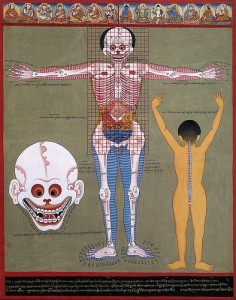The following is an excerpt from a teaching by Jetsunma Ahkon Lhamo called “Commitment to the Path”
Buddhism is not the kind of religion that necessarily comforts us, although once you get the big picture, it’s the only thing that comforts you, the only thing that makes sense. That’s my experience. Other religions will tell you, “Don’t worry. Have faith. Everything is going to be OK,” but Buddhism says,” Well, you know, maybe not.” The first thing we hear in Buddhism is, “We’re all going to die.” And so sometimes because of our cultural habits, we think, “That’s kind of a downer. I don’t want to hear that. Don’t give me any down stuff. Just give me the up stuff. I want the feel good religion. That’s what I want.” So you think, “Well, I don’t want to hear about how I’m going to die. I don’t want to hear about how everything is impermanent. I don’t want to hear about everybody suffering and I have to make it better. I want to hear some good news.”
But Dharma actually tells you the truth. Dharma is like that kind of perfect parent that doesn’t speak in a condescending way to their children, a parent that tells them the truth directly, maybe in child language, but tells them the truth, speaks clearly, respects their dignity enough to tell them what is up. And that is what Dharma does. Dharma says to us that everything is impermanent. We are all wandering in cyclic existence. We do not know how to get out of cyclic existence because we don’t know how to create the causes for liberation. We don’t know how to create the causes for happiness. So it’s a roll of the dice: Which of our karma is going to ripen? According to the Buddha’s teaching, it’s all there. We have been existing as sentient beings since time out of mind. We have had time to create the causes for everything from living in a god realm to living in a hell realm.
Once we see that our lives are kind of like a wild locomotive careening down a track, down a mountain with no brakes, and we just really can’t tell when it’s going to derail, we begin to ask ourselves, “How can I prepare? What can I do?” That’s when Dharma becomes to us a sensible religion, a make-sense kind of thing, because it shows us cause and effect relationships. It shows us what we’ve got to deal with and it gives us a way to recognize a path out, a path through, a path under and over, and there is always something that we can do to prepare our minds.
Copyright © Jetsunma Ahkon Lhamo. All rights reserved
